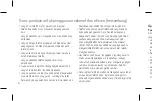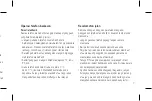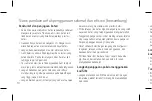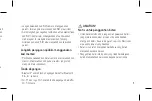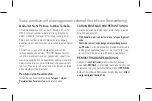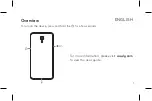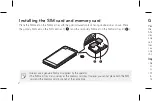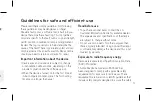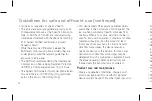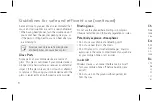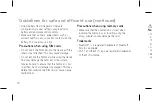
Guidelines for safe and efficient use (continued)
8
Children
Keep the phone in a safe place out of the reach of
small children. It includes small parts which may
cause a choking hazard if detached.
Emergency calls
Emergency calls may not be available on all mobile
networks. Therefore you should never depend solely
on your phone for emergency calls. Check with your
local service provider.
Battery information and care
•
You do not need to completely discharge the
battery before recharging. Unlike other battery
systems, there is no memory effect that could
compromise the battery’s performance.
•
Use only LG batteries and chargers. LG chargers
are designed to maximise the battery life.
handset close to your ear. We also recommend that
music and call volumes are set to a reasonable level.
•
When using headphones, turn the volume down if
you cannot hear the people speaking near you, or
if the person sitting next to you can hear what you
are listening to.
Excessive sound pressure from earphones
and headphones can cause hearing loss.
Glass Parts
Some parts of your mobile device are made of
glass. This glass could break if your mobile device is
dropped on a hard surface or receives a substantial
impact. If the glass breaks, do not touch or attempt
to remove it. Stop using your mobile device until the
glass is replaced by an authorised service provider.
Blasting area
Do not use the phone where blasting is in progress.
Observe restrictions and follow any regulations or rules.
Potentially explosive atmospheres
•
Do not use your phone at a refueling point.
•
Do not use near fuel or chemicals.
•
Do not transport or store flammable gas, liquid or
explosives in the same compartment of your vehicle
as your mobile phone or accessories.
In aircraft
Wireless devices can cause interference in aircraft.
•
Turn your mobile phone off before boarding any
aircraft.
•
Do not use it on the ground without permission
from the crew.

